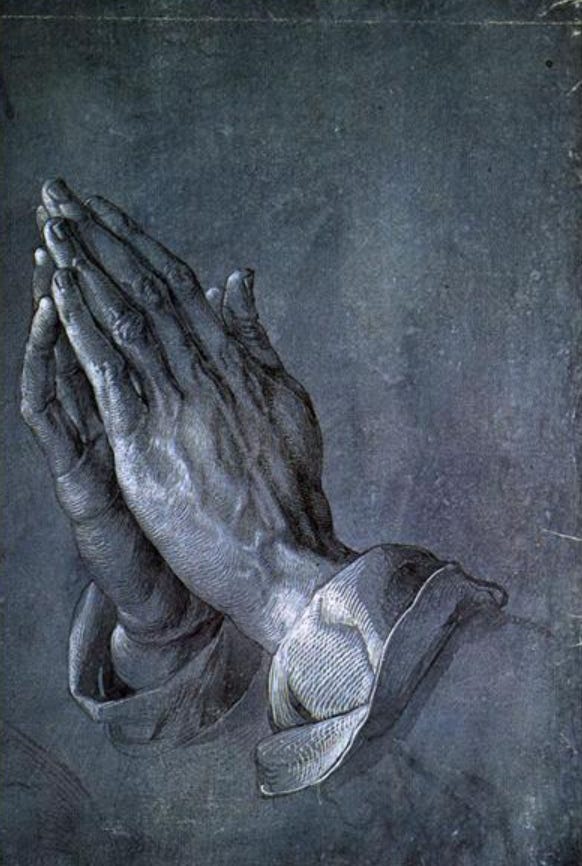Religious holidays can be a difficult time for some Saints. Having suffered wrongs, sinned, or endured ‘infuriating unfairness,’ many of us may be emotionally distant, drifting, numb, or ‘spiritually eclipsed’ as one Apostle put it recently. Some of us are encountering the messy realities of ancient and modern Church history, and may be wrestling with doubts. Still others may have lost family members or friends—key people who have acted as God’s emissaries to us and our neighbors. Mortality may leave us feeling confused as life’s circumstances seemingly ‘disrupt our rejoicings’ (Alma 30:22).
Nevertheless, the message of Easter promises a renewal of life—especially to the spiritually wounded. Christ has the power to help us reclaim everything we’ve lost or will lose, even our own hope.
The Apostle Matthew recounted a key detail of Christ’s suffering that has given me tremendous comfort in seasons when “the heavens seem like brass over [my] head.” By this point, Jesus has already endured the agony of Gethsemane. He’s been arrested and tried on false charges by religious and civic authorities. He’s been betrayed or forgotten—both by Judas and by the Aramaic Jews who in droves had welcomed him to Jerusalem as David’s heir less than a week earlier. He’s been beaten, sworn at, blasphemed and defamed by pagan imperial occupiers. And now, he’s on the cross, with all its humiliation, exposure, and physical agony. Just at this crucial moment of suffering—when Jesus may have longed for his Father’s presence the most—the Holy Ghost withdraws from him.
Eloi, eloi, lama sabachthani. “My God, My God” Jesus cried, “why hast thou forsaken me?” (Matt. 27:46 KJV)
In this moment, the Son of God, who had relied on the presence of his Father from day to day even in this hour of personally atoning for his brothers and sisters, felt the heavens withdraw themselves. Then and only then could he declare “It is finished.” (John 19:30) Why? Perhaps because he could not atone for, advocate for, nor redeem a people whose experiences he could not fully comprehend. He was required to experience their feelings of bitterness at life’s ironies, trials, and unfulfilled promises.
As Alma eloquently taught a congregation in Gideon:
. . . he shall go forth, suffering pains and afflictions and temptations of every kind; and this that the word might be fulfilled which saith he will take upon him the pains and the sicknesses of his people. . . . and he will take upon him their infirmities, that his bowels may be filled with mercy, according to the flesh, that he may know, according to flesh how to succor his people according to their infirmities.” (Alma 7:11–12)
That Son of Man who descended later from the heavens, professing to be “the God of the whole earth,” could not fulfill his mission or be who he claimed to be unless he was at last acquainted with the spiritual emptiness that so often lends itself to unbelief or doubt (3 Ne. 11:14). Spiritual death needed to be conquered entirely. And that included confronting the hard ironies of mortality that sometimes seem to contradict faith. If “God is a god of miracles,” why do so many not receive them (Morm. 9:11)? If the “righteous” are “Blessed and happy,” why does God allow the innocent and repentant to suffer or die (Mosiah 2:41)? If we’re told we need only “ask and it shall be given you,” then why is there often silence when we plead on our knees for blessings we so desperately need (Matt. 7:7)? As with other such questions, Jesus needed to have learned the answers in order to know how to succor his people. These answers only came when at last he experienced and conquered a complete separation from God.
And how was he able to “overcome” (Rev. 3:21, KJV)? By obeying what he has asked of us: “endure to the end” (2 Ne. 31:20). Importantly, the scriptures do not indicate whether Christ ever felt the Spirit again in mortality after his Father withdrew it. It simply says that he cried with a loud voice and “gave up the ghost” (Matt. 27:50, KJV). He finished his work, and returned to the presence of that God who first gave him life (Alma 40:11). His answer to the vexing questions of mortality was to press forward, to stick to the Plan, to trust that Almighty God still watched over and cared for him, even when he was seemingly distant in those moments of acute spiritual anguish. To humbly “commend” himself “into [his Father’s] hands” (Matt. 27:50; Luke 23:46, KJV). With that loyalty to his Father and determination to finish his work, even without heavenly assurance, Jesus gained the victory—the rewards that await all those whose patience and faith are sorely tried and yet they endure: to rest in Paradise, the promise of the First Resurrection, and Everlasting Salvation.
Because Christ endured his moment of spiritual darkness, we too can endure our own. When he died, Matthew recounted that the veil of the temple was “rent from top to bottom” (Matt. 27:51, KJV). And I think, through his sacrifice, he also provided a way to rend the “veil of unbelief” that still plagues many of us (Ether 4:15)
.
This Easter, may we each continue forward through joy and sorrow with the plea that Christ will help us rend our veil of unbelief. He is a compassionate God who has suffered the same feelings of confusion, betrayal, and emptiness many of his children do, and I am confident he can strengthen us to “be believing,” no matter our circumstances (John 20:27, KJV). May we follow His example, and may God consecrate our afflictions, our pains, and our uncertainties for our good (2 Ne. 32:9). And when our hard work is “finished” may he welcome us back in his own time, to “go no more out” (Rev. 3:12, KJV).
Jacob Hawkins is a historical and cultural researcher living in Provo, Utah.
Art by Albrecth Durer.






